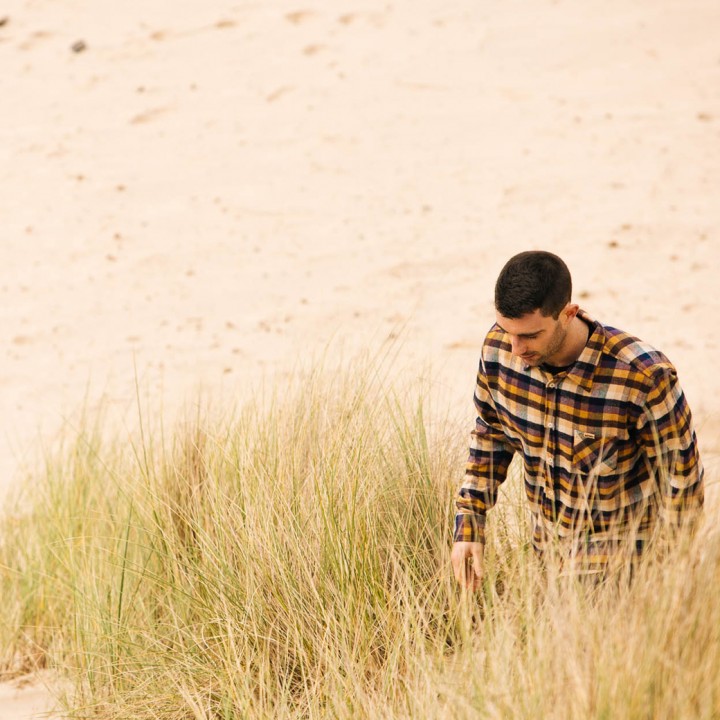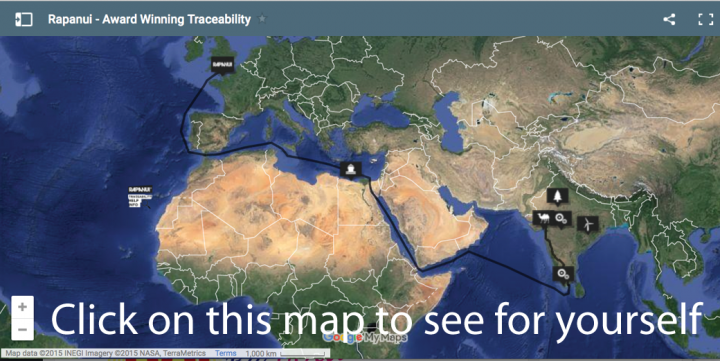
Clothing is one of the most ubiquitous commodities on sale – from traditional retailers to supermarkets, it seems everyone’s selling clothes.

These days, more than ever, many of us are conscious of the journey each T-shirt or pair of jeans makes before it ends up on the rack in front of us, but that’s not to say it’s always an easy route to track.
Rapanui produce casualwear for men and women, and they felt customers needed more knowledge about where clothes come from. So they produce free and detailed traceability maps that let people track the source of the garment “from seed to shop”.

“Even though we’re still working on it, we’re really proud of our supply chain,” they say. “Traceability is a great way to open up the doors at any company and it’s exactly because we feel we’ve got a good supply chain that we like the idea of sharing it, inviting you to have a tour around the place.”

The chain takes customers from the planting of the seed to manufacturing, energy use and transport. Don’t be surprised to find pictures of the farm workers who pick the cotton, or the machinists in the factories. You can even get this on your phone from the labels inside Rapanui garments.

As Isle of Wight-based Rapanui make clear, as consumers we don’t need to be told off. We just need this information to be freely available and easy to understand.
Then what we do with it is up to us.
